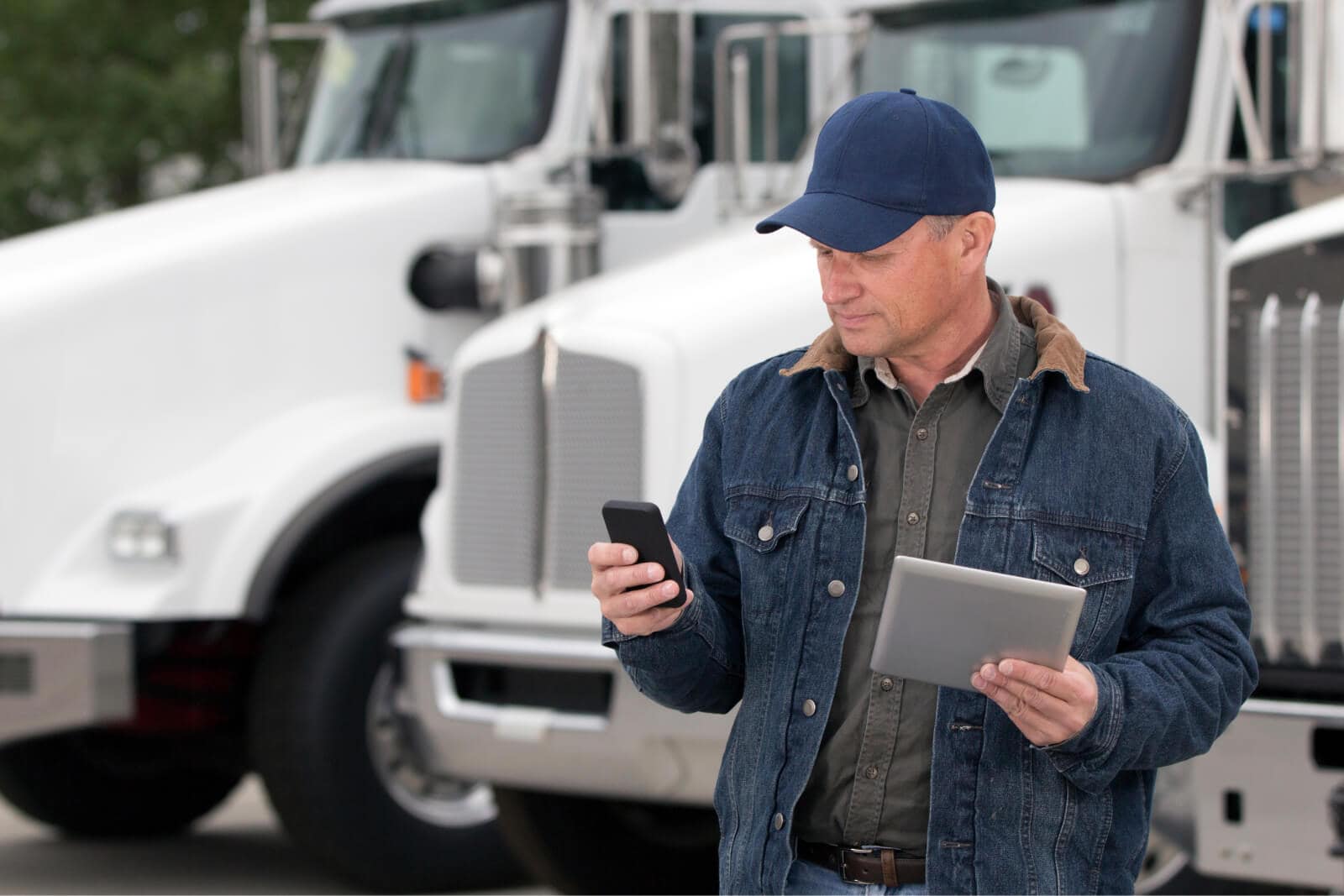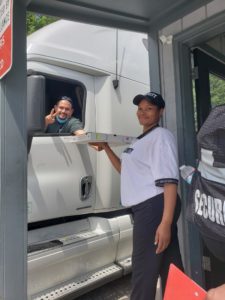
You might have heard about our new Network Congestion Map. Accessible for anyone, free of charge, this set of custom dashboards gives live, real-time updates on border crossing times, port congestion, inbound and outbound traffic levels, and detention changes over time. It’s crowd-sourced from thousands of carriers and hundreds of thousands of active loads being tracked by FourKites around the globe, and it’s being put to use by logistics professionals all over the world.
We recently released an update to make this data available in CarrierLink, our driver-facing mobile app, completing the circle by returning the ownership of and value generated by that data back to the carriers whose hard work supplied it in the first place.
We’re constantly working on new additions to this free tool that will benefit both shippers and carriers alike, making sure that both parties stand to benefit from being a part of the FourKites network. It’s this spirit of collaboration and collective value that inspired our latest feature release, which makes life easier, safer and more convenient for one of the most vulnerable segments of our supply chain: frontline workers.
More than ever, we need to maximize the ability of frontline workers to complete their daily tasks with the minimum amount of fuss, time spent and exposure to other people. For the average truck driver delivering a load, the current system is rife with unnecessary touch points and manual tasks. First they have to check in at the guard shack, then they have to let the shipping officer know they’ve arrived, then they have to wait for a dock and fill out paperwork with the dock manager. Because all of this is still handled on old-fashioned wood pulp, the driver will often then be responsible for finding a fax machine somewhere nearby so he can send copies of the completed documentation to relevant parties.
This is no longer just about convenience. In the midst of a global pandemic, there’s a clear health and safety concern associated with expecting drivers and other frontline personnel to exchange dozens of sheafs of germy paper.
FourKites’ new product rollout – which includes electronic bill of lading and proof of delivery documentation – eliminates all of that. Through our free CarrierLink app, drivers are now able to send all of the relevant paperwork for a given load directly to the shipping office with the press of a button. If either party needs to make a notation or addendum to any of the paperwork, they can do it right there in the app, and then get back to work. There’s no need for time-consuming exchanges of physical documents, nor the potential for cross-contamination by either party. Moreover, it eliminates the need for the driver to spend time and money tracking down a fax machine to send copies of the paperwork to the shipper, receiver, dispatcher and whomever else might need confirmation of delivery.
Combine that with more intelligent yard and warehouse management, and you’re starting to unlock the potential to make a significant dent in the huge number of trucks sitting idly by waiting to unload at their target facilities.
Taking documentation digital also makes the entire system much more secure and tamper-proof than the paper documentation that facilities rely on today. When all parties have visibility into documentation at all times, and copies are sent to all stakeholders, the potential error and misconduct declines dramatically. By consolidating all of that information into a single source of digital truth, the entire documentation process becomes safer, more convenient and much more secure.
. . . . . . . . . . . . . . . . . . . . .
The empty shelves we faced at the beginning of this global crisis made it all too clear how important and visible our global supply chain networks have become. What’s more, the people who are keeping those supply chains running are some of the most vulnerable to infection themselves – which would result in severe repercussions to the system as a whole. We need to do whatever we can to support our drivers, dock workers and other frontline employees as they work to provide us with the food and other materials we need to survive.
It starts with saying thank you and giving encouragement and assistance where we can. Last week we kicked off a pair of initiatives, sponsoring UberFreight’s #ThankATrucker campaign, alongside companies like Ryder and McDonalds, and partnering with Truckstop.com to deliver hundreds of pizzas to drivers at truck stops around the country.

But we can’t stop here. Gestures like this are important, but as I’ve written in the past, we also need to focus on the big, systemic inefficiencies that plague the system and impact drivers on a daily basis. If we really want to show our appreciation to the hundreds of thousands of truck drivers and other frontline workers keeping us afloat, we need to start doing what we can to make their daily lives truly easier, safer and more convenient.